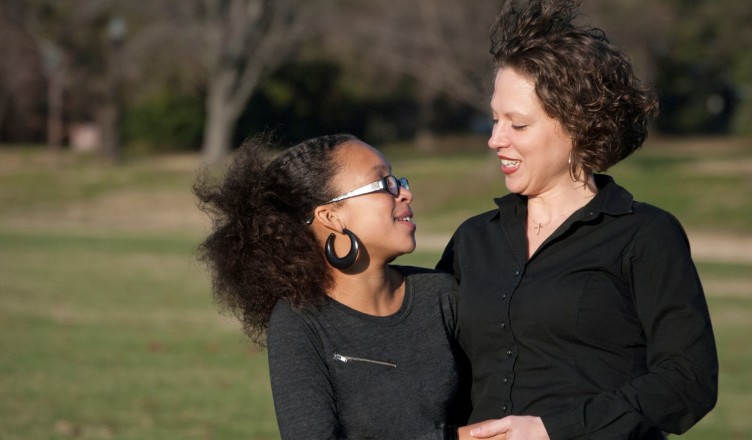Foster teens have memories that are full of experiences they’ll never forget. A long summer day, a tried and true friendship or a first crush will always stand out among them. But recollections of abuse and neglect, unfamiliar placements, unreciprocated love and the strong social pressure to hide the past might stand out even more. As your foster teen looks down the long road of adulthood that lies ahead, keep in mind that a difficult past will stay with her no matter where she goes. But never fail to show that there’s more to life than what the past can hold. Fostering teens successfully depends on how well you can show them that their future can be different.
Past traumas can have a truly daunting affect on the way a foster teens view the world. When fostering teens, keep in mind that important teenage questions might come with disheartening answers.
“Who am I?” a foster teen might ask.
“Someone undeserving of love,” she might answer.
“Where do I fit in?” a foster teen might ask.
“Nowhere at all,” she might answer.
There’s no shortcut or magic remedy that can change the way your foster teen feels about herself overnight. There is, however, a great way to change the way she sees the world around her: by showing her what a role model looks like, what a welcoming home feels like, and what skills she’ll need to navigate the road ahead.
Fostering Teens: What a Role Model Looks Like
Showing your foster teen what a role model looks like will help her understand that there are people in the world who do good without expecting something in return. It will show her that the future is not predestined and that it’s never too late to learn, grow and improve. Role models are important at every point in our lives but especially when we are teenagers. Think back to your teenage years and how emotionally turbulent they could be. Most of us can call to mind someone who kept us anchored during tough times despite our own instability. These people – they could be anyone from a teacher to a friend to a coach – had a meaningful impact on our lives back then and helped us become the people we are now. Most of them shared a few common traits: compassion, understanding, empathy, lack of prejudice or judgment and a willingness to listen closely. By practicing these traits, you can have the same impact on your foster teen’s life as your teenage anchor had on yours.
Fostering Teens: What a Welcoming Home Feels Like
Showing your foster teen what a welcoming home feels like will help her understand that not every environment is hostile. It will help her feel that a comfortable, safe place to call home is something that everyone deserves and that maybe one day in the future she can be the person to provide that place for someone who needs it. Feeling comfortable at home will also allow your foster teen to be herself – there’s almost nothing more therapeutic and beneficial for someone who needs a self-esteem boost than this. If your foster teen ever felt unwelcome at home with her bio parents, returning to a warm household will feel like a weight lifted from her shoulders. If the social pressures and academic stresses of high school can be a bit much for your foster teen to bear, a home where she’s understood and never asked to be anyone but herself is a wonderful place to be.
Fostering Teens: The Skills Needed to Navigate the Road Ahead
A big part of fostering teens is ensuring that they are prepared for the challenges on the horizon. For younger teens, more difficult school work and an increasingly active social life are sure to add some pressure. On top of that comes puberty – new urges and bodily functions will take some getting used to, but they’re nothing you and your foster teen can’t handle with a little help.
For foster teens who’ve made it safely through puberty, socializing is likely to absorb even more time and energy. Getting to the movies, a friend’s house or the mall often means hopping in the driver’s seat, and the cost of licensing and registration fees, as well as on-the-road training, can start adding up. Fortunately the Division of Child Protection and Permanency (DCP&P, formerly DYFS) has a program that subsidizes some of these costs and can make getting on the road a much more manageable process.
While graduation may loom large on the horizon for foster teens, caps and gowns almost never mean the work is over. There’s a lot to prepare for – college, vocational schools, job training and careers to name a few. Every post-high school option requires a lot of thought and most require a lot of funding. FAFS private scholarships and the New Jersey Foster Care (NJFC) Scholars Program can help ease some of the financial pressure on foster teens who are looking into their post-secondary education options.
Fostering teens is a big job. Big decisions seem to constantly hang over foster teens’ heads and stresses can come from every angle. A little guidance and reassurance, rather than judgment and criticism, and a bit of preparation can go a long way towards helping your foster teen understand what choices are right for her.

